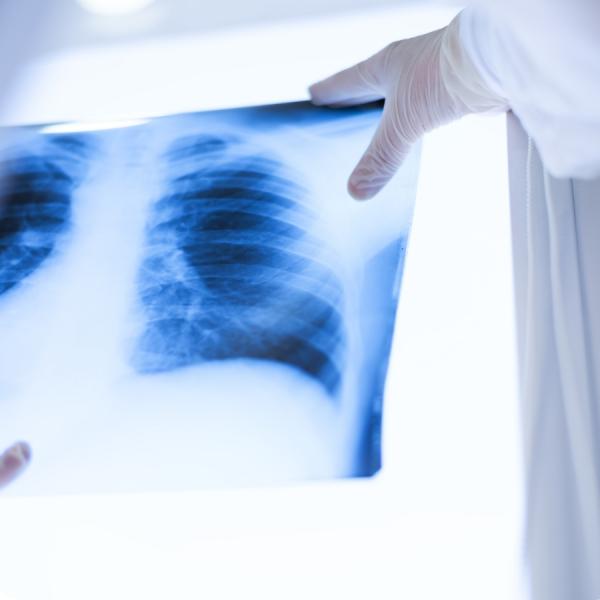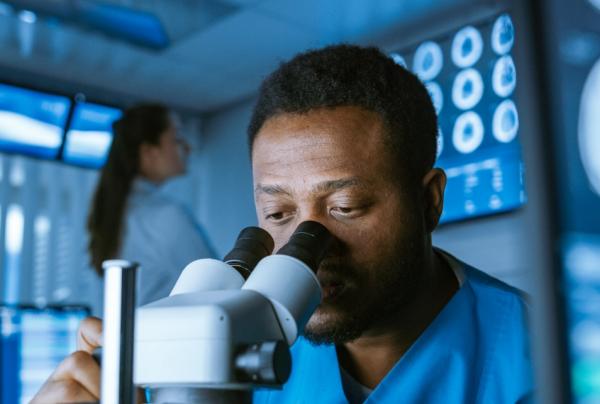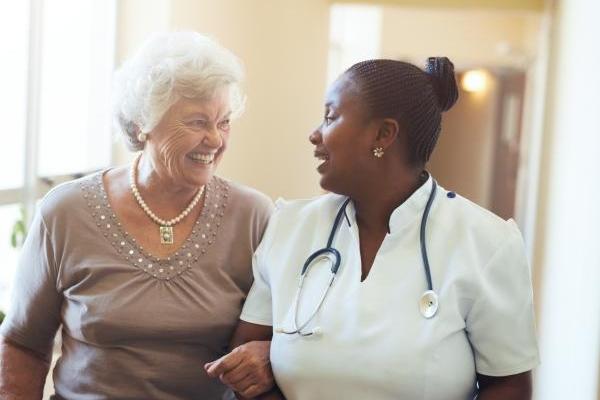Support for Unpaid Carers
Prioritising your health as an unpaid carer
As an unpaid carer, your role in supporting a loved one is incredibly important, but it’s equally essential to remember to prioritise your own health and well-being.
Many carers often put the needs of others before their own, which can leave their physical and emotional health vulnerable. It’s crucial to take proactive steps to ensure that you remain healthy, so you can continue to provide the care your loved one needs.
One important aspect of looking after yourself is understanding the signs and symptoms of cancer, as well as engaging in cancer screening programmes and knowing how to reduce cancer risk.
Download our cancer support guide for unpaid carers.
Cancer and health advice for unpaid carers
"If we don't look after ourselves, how are we going to look after the people we care for?"
Watch a video for advice on how you should take care of your own health, in particular looking out for signs and symptoms of cancer and attending cancer screening programmes.
Understanding the signs and symptoms of cancer
Finding cancer early can make a big difference in treatment outcomes. Knowing the common signs and symptoms of cancer can help you notice any changes in your health and seek medical advice sooner. While cancer symptoms vary depending on the type of cancer, some common warning signs are:
Take action
If you experience any of these symptoms, it’s important to speak with your doctor as soon as possible. Remember, many of these symptoms can also be related to conditions other than cancer, but early detection is key in reducing the risks associated with cancer.
Find out more about how to seek advice and get checked.
Cancer screening programmes
It's essential that you make time to attend your cancer screening appointments. Cancer screening helps find early signs of cancer, even before any symptoms appear. Finding cancer early makes it easier to treat, which can improve the chances of recovery.
The free cancer screening programmes in England are:

Reducing your risk of cancer
While cancer can’t always be prevented, there are steps you can take to reduce your risk. Here are some things you can do to reduce your risk of cancer:
- Maintain a healthy diet: Eating a balanced diet with plenty of fruits, vegetables, and whole grains can help reduce your risk of certain types of cancer.
- Stay physically active: Regular exercise can help reduce the risk of cancers such as breast and colon cancer.
- Avoid tobacco: Smoking is the leading cause of lung cancer and is linked to several other cancers. Quitting smoking is one of the best ways to reduce your cancer risk.
- Limit alcohol consumption: Excessive alcohol consumption is a risk factor for several cancers, including liver, breast, and throat cancer.
- Protect your skin: Avoid excessive sun exposure and use sunscreen to reduce the risk of skin cancers, including melanoma.

Cancer diagnosis and treatment
If you’re diagnosed with cancer, it’s important to understand the options available for treatment. The type of treatment will depend on the type and stage of cancer, but common treatment options include:
- Surgery: To remove the tumour or cancerous tissue.
- Chemotherapy: Uses drugs to kill or slow the growth of cancer cells.
- Radiotherapy: Uses high-energy rays to target and destroy cancer cells.
- Immunotherapy: Boosts the body’s immune system to help fight cancer.
- Hormone therapy: Used to block or reduce hormones that fuel certain types of cancer.
- Targeted therapy: Focuses on specific molecules involved in cancer growth.
It’s important to have an open and honest conversation with your healthcare team about your treatment options, potential side effects, and your personal preferences.

Living with and beyond cancer
A cancer diagnosis can be overwhelming, and the journey doesn’t end after treatment. Many people face physical, emotional, and psychological challenges even after their treatment has finished.
Living with and beyond cancer involves managing both the long-term effects of cancer treatment and the emotional impact of living with a cancer history.
Support is available to help you navigate life after cancer treatment, and it’s important to seek help when needed

Take care of yourself and seek support
As an unpaid carer, it’s essential to prioritise your own health and well-being, not just for yourself but for your loved one as well.
Regular cancer screenings, adopting a healthy lifestyle, and understanding cancer symptoms and treatment options can help protect your health.
Living with and beyond cancer requires ongoing support, and there are many support services available to assist you in this journey.
Remember, seeking help is not a sign of weakness. Whether it’s through medical care, emotional support, or practical assistance, there is a wealth of resources available for unpaid carers like you. Take time for self-care, and don’t hesitate to reach out for support when you need it.
